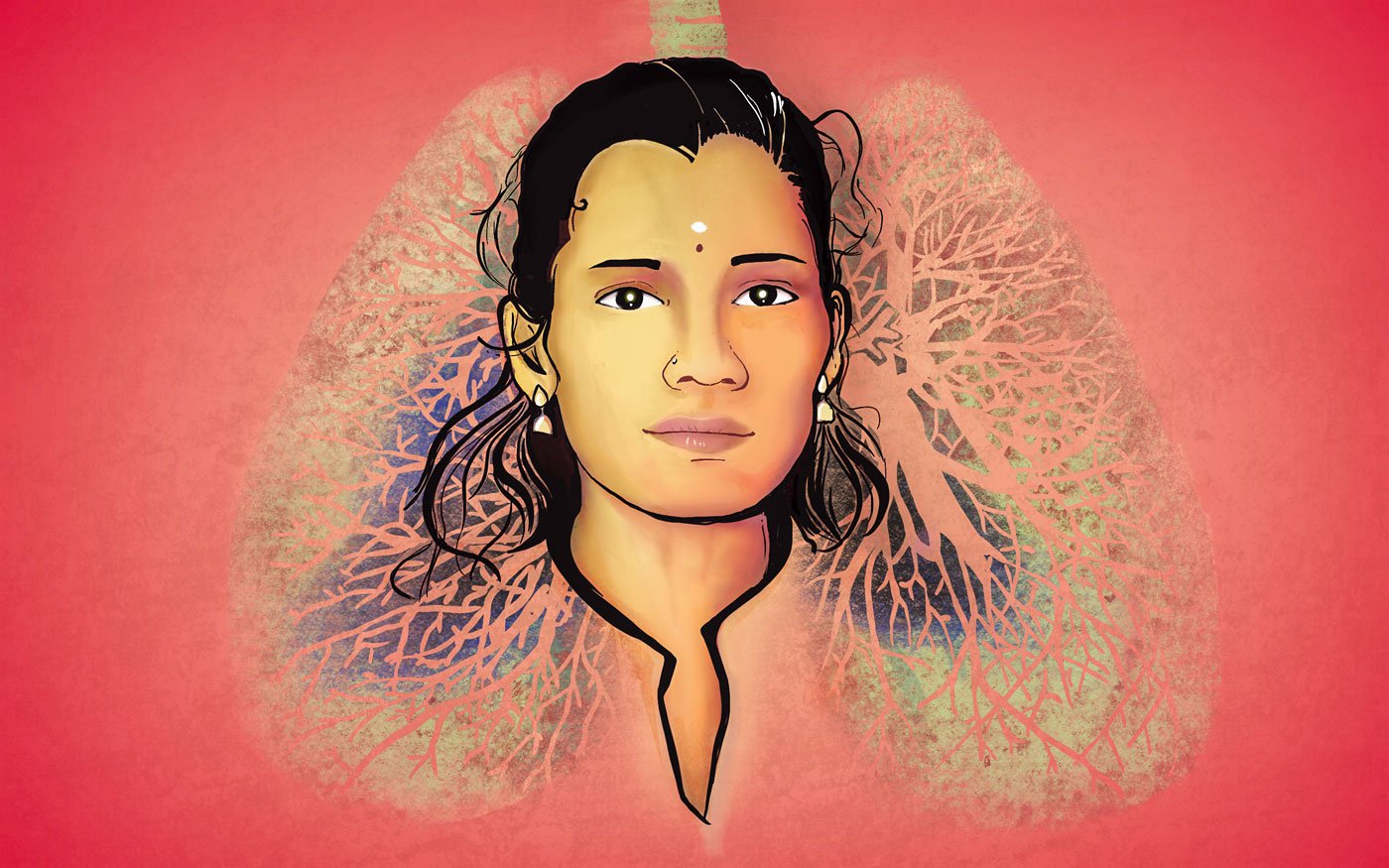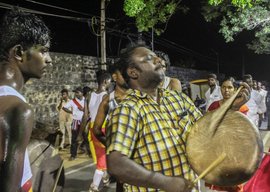“Can I trust you with the story of my life?”
It was as direct and challenging a question as you could run into. And the questioner had excellent reasons for asking it. As Janani ( name changed ), from a little-known village in Tamil Nadu’s Villupuram district, says of her life story: “Tuberculosis changed it completely.”
She had been married a year-and-a-half and had a four-month-old son when she contracted TB. “That was in May 2020 and I had symptoms [chronic cough and fever] for about a month before that.” When all routine tests failed, the doctors advised her to get tested for TB. “When they confirmed it was Tuberculosis, I broke down. This had not happened to anyone I knew, and I never imagined it could happen to me.
“A disease so stigmatised in my village, an ailment which ends all socialising – that it could come to me!”
From that day, 27-year-old Janani’s once-loving husband constantly picked on her for getting a disease that she could pass on to him. “He would abuse me verbally and physically. His mother passed away a year after we got married – because of complications with prior kidney-related ailments. But my husband began saying it was because of me.”
If there was one person at serious risk in that period it was Janani herself.
TB remains India’s largest killer among infectious diseases.
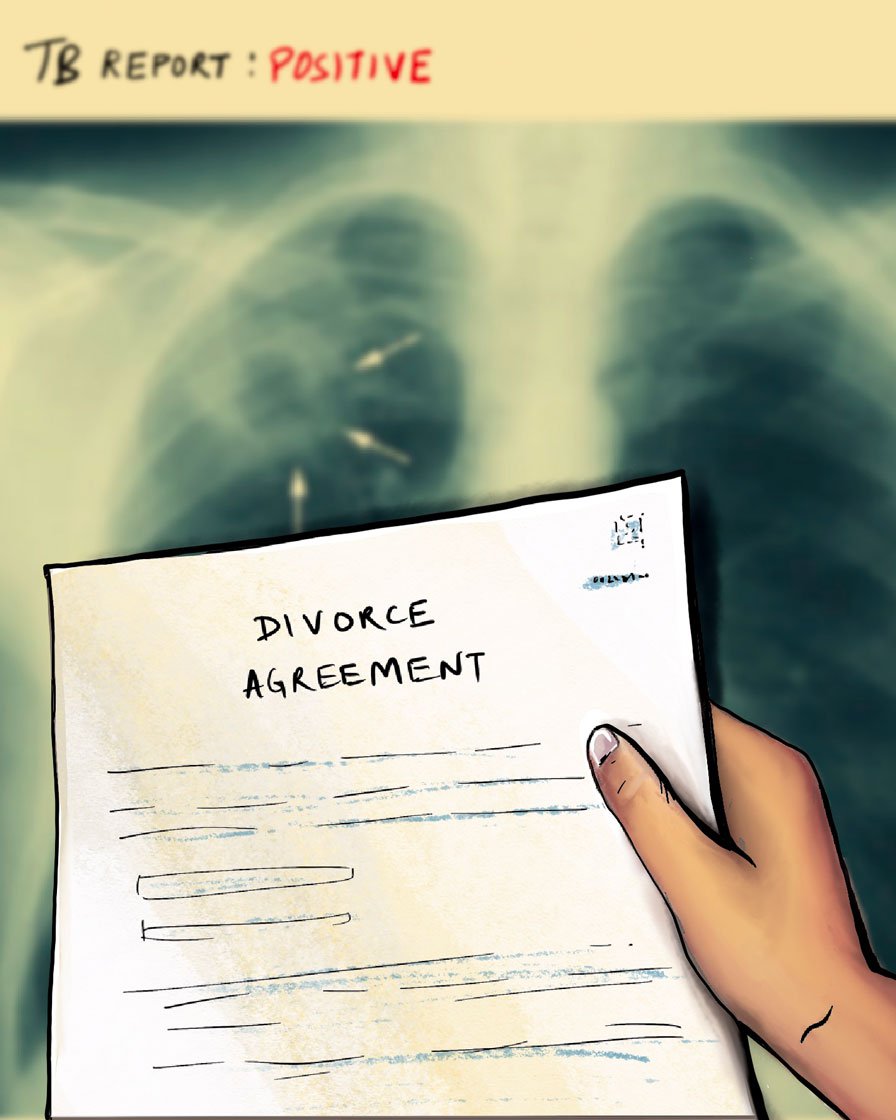
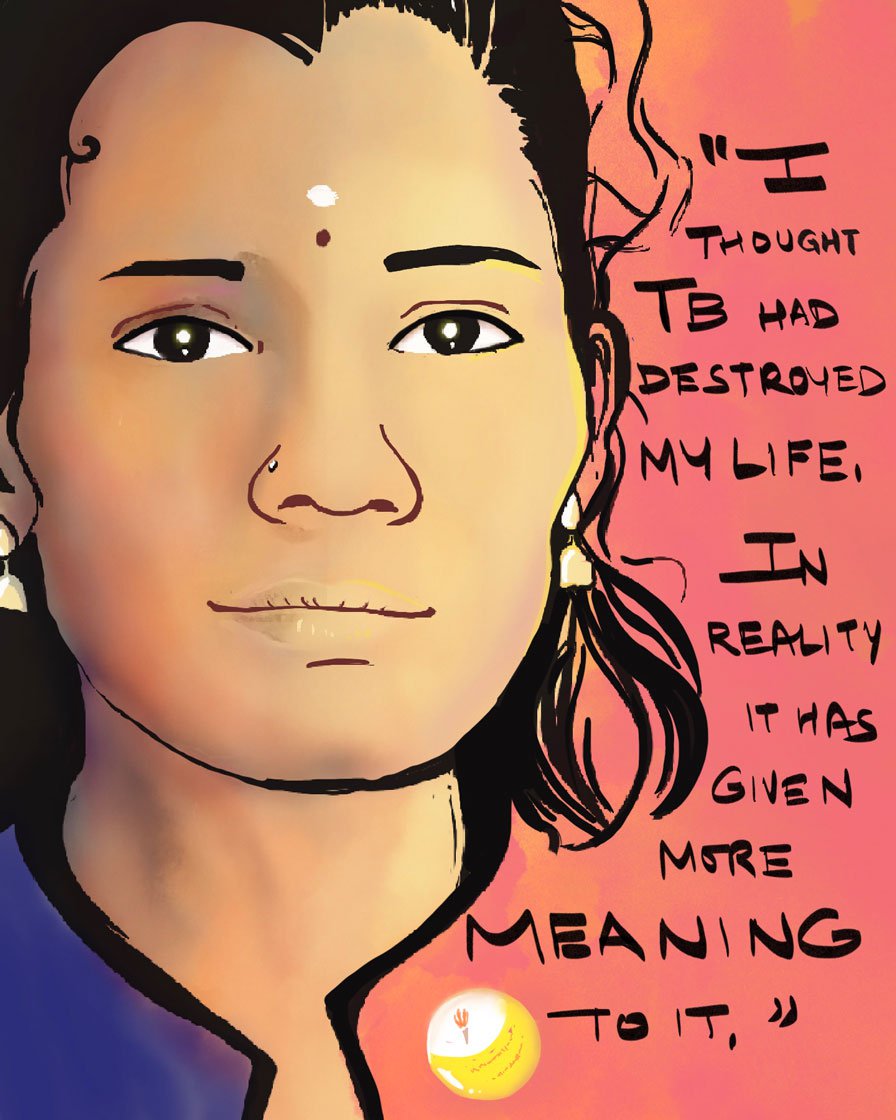
Less than a month after contracting TB, Janani went to her parents’ home, unable to take her husband's abuse. He filed for divorce
Even before Covid-19 took centre stage, Tuberculosis affected over 2.6 million Indians in 2019, killing some 450,000 people , according to the World Health Organisation. The Indian government strongly disputed the WHO figure saying that the number of TB—related deaths that year was no more than 79,000 . Covid-19 has claimed 250,000 deaths these past 15 months.
In in 2019, India accounted for a quarter of the total number of TB cases across the world – these, the WHO notes, numbered 10 million . “Globally, an estimated 10 million…people fell ill with TB in 2019, a number that has been declining very slowly in recent years.” India also accounted for a quarter of the 1.4 million TB deaths worldwide.
The WHO characterises TB as “caused by bacteria ( Mycobacterium tuberculosis ) that most often affect the lungs…TB is spread from person to person through the air. When people with lung TB cough, sneeze or spit, they propel the TB germs into the air. A person needs to inhale only a few of these germs to become infected. About one-quarter of the world's population has a TB infection, which means people have been infected by TB bacteria but are not (yet) ill with the disease and cannot transmit it.”
Tuberculosis, adds the WHO, “is a disease of poverty and economic distress.” And, it says, people affected by TB often face “vulnerability, marginalization, stigma and discrimination..”
Janani knows how true that is. Despite her highly-educated status – she has a post-graduate degree in Science and a graduate degree in Teaching – she’s had her share of vulnerability, stigma and discrimination. Her father is a labourer – “doing odd jobs” when he can find them – her mother a homemaker.
Since her bout with the disease, and after her complete cure – Janani has become what the campaign here against the dreaded disease calls a “TB warrior” or ‘Woman TB leader’, actively countering the perceptions and stigma that surround tuberculosis.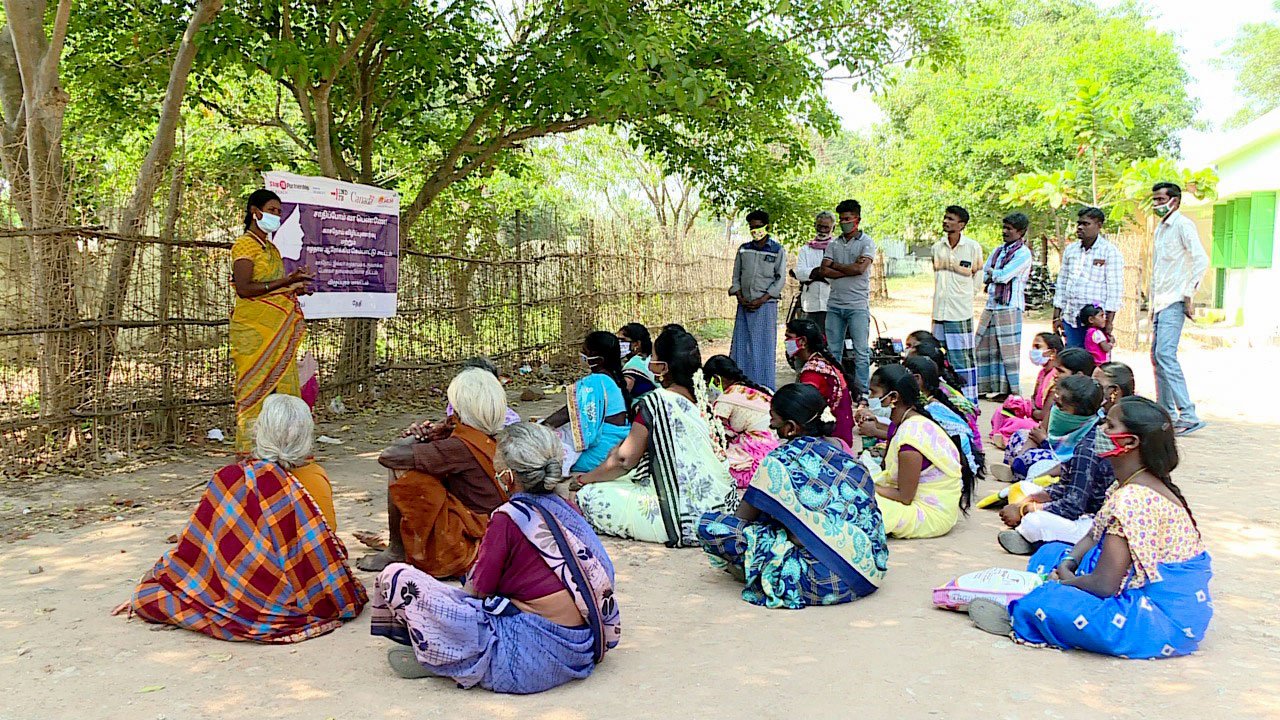
Janani has been meeting people in and around her village to raise awareness about TB and to ensure early detection
In June 2020, less than a month after contracting the disease, Janani went to her parents’ home. “I was unable to take (my husband’s) abuse beyond that. He would abuse my son too – the four-month-old child. What sin did he commit?” Her husband, who runs a small workshop, promptly filed for divorce and her parents, she says, were “shocked beyond belief.”
But they welcomed her home. Janani stresses how much she owes them – “As a child and youngster, they wouldn’t send me to do agricultural work. That is common in our part of the world. They made sure all their kids were well-educated.” She has two older siblings, a brother and sister – both postgraduate degree holders. Janani herself began working only after parting with her husband.
In December 2020, completely cured of tuberculosis, she chose not to explore the various career options open to people of her qualification. Instead, she joined the Resource Group for Education and Advocacy for Community Health (REACH), a non-profit working in the TB eradication space for over two decades in Tamil Nadu. Since then, Janani has been meeting people in and around her village to create awareness about TB and to ensure early detection. “I have held several meetings, have detected early tuberculosis in three patients, and continue to follow up with more than 150 persons who have tested negative but have persistent symptoms.”
As the WHO report says: “TB is curable and preventable. About 85% of people who develop TB disease can be successfully treated with a 6-month drug regimen.” And “Since 2000, TB treatment has averted more than 60 million deaths, although with access still falling short of universal health coverage (UHC), many millions have also missed out on diagnosis and care.”
*****
“It was a challenge all the way through, during Covid and the lockdown” says 36-year-old B. Devi, in Tamil Nadu’s Tenkasi district. Like Janani, she evolved into a ‘TB warrior’ from her own experience. “I was detected with tuberculosis when studying in Class 7. I had not even heard of the term before that.” Despite her struggles, she managed to study up to Class 12.
Her parents took her to a private hospital, where she was not cured of the disease. “Then we went to Government Hospital, Tenkasi, where I was put through various procedures. But thinking about it now, nothing about the treatment was reassuring. I wanted to change that experience for those I came in touch with,” Devi says.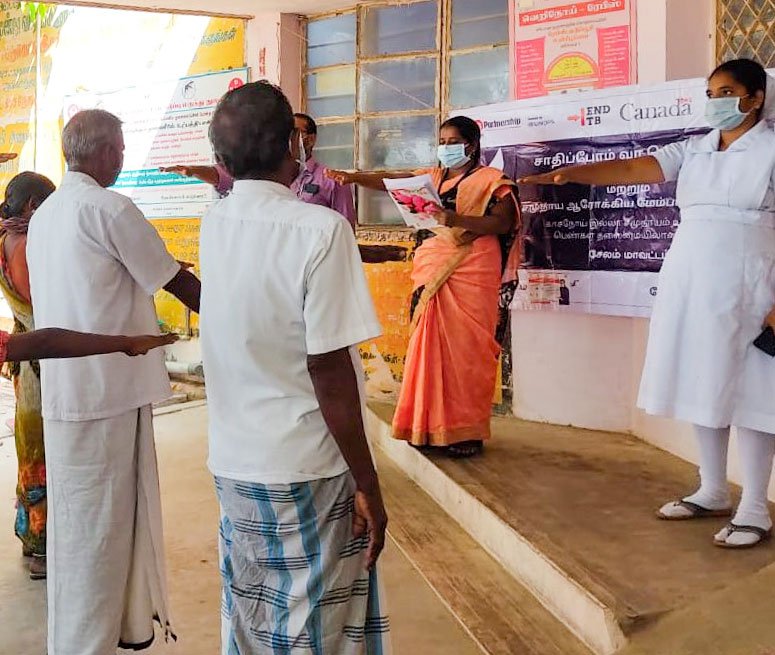
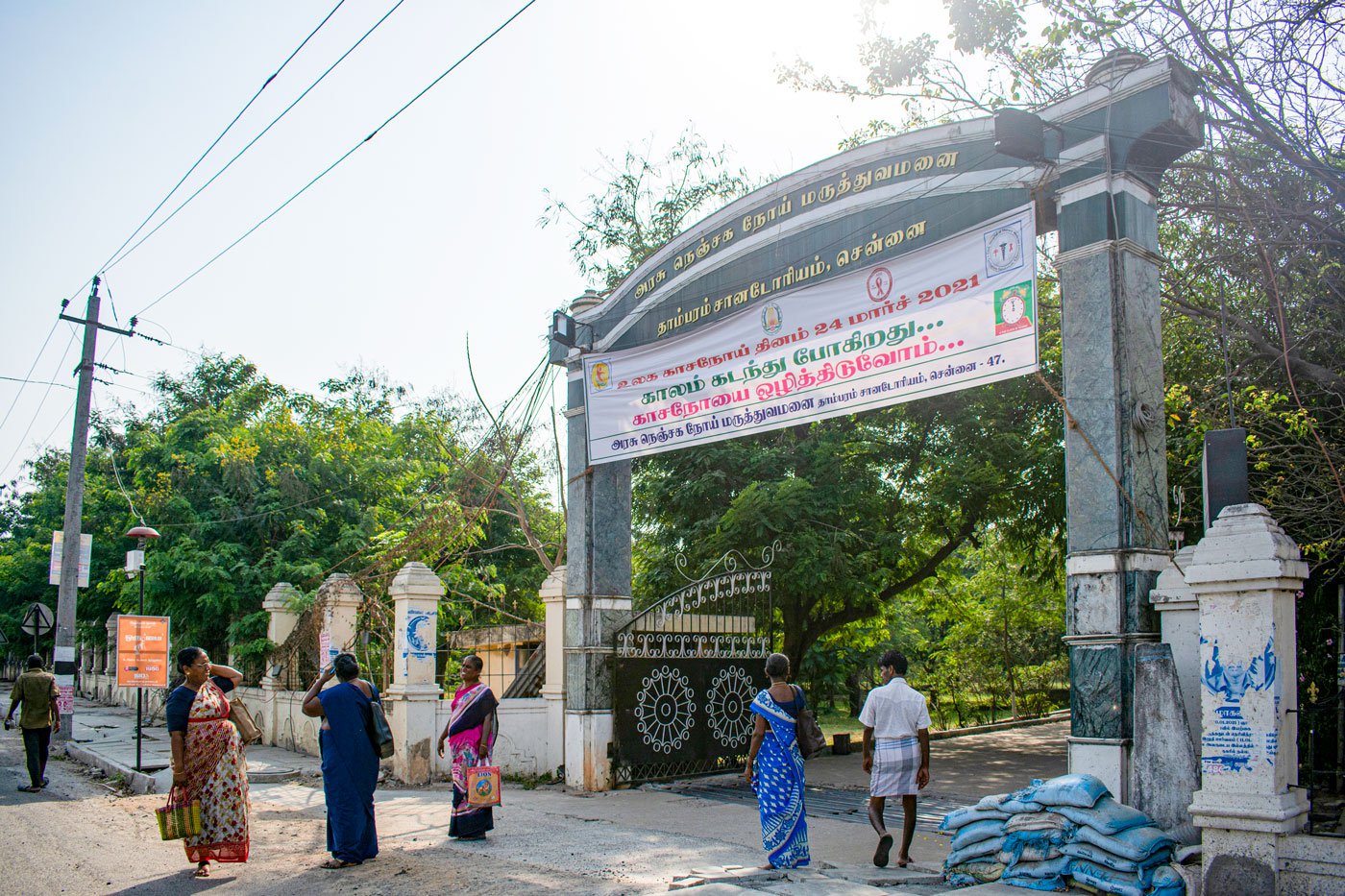
The organisation's field workers and health staff taking a pledge to end TB and its stigma at a health facility on World TB Day, March 24. Right: The Government Hospital of Thoracic Medicine (locally known as Tambaram TB Sanitorium) in Chennai
Devi is from Veerakeralampudur, a taluk in Tenkasi district. Her parents were agricultural labourers. Despite their own poverty, she says, they and other relatives were very supportive when TB struck her. They sought treatment for her and followed up on it diligently. “I was well taken care off,” she says.
Devi’s husband too, was helpful and reassuring. It was he who thought up a job path for her. She would join the anti-TB campaign, undergo training, and work with the same non-profit as Janani did. Since September 2020, Devi has conducted over a dozen meetings (attended on average by 20 or more people) in which she speaks about TB.
“Only after attending the training I knew I was going to handle TB patients. Honestly, I was excited. I could do something positive that was denied to me,” she says. In the general hospital at the Puliyangudi municipality of Tenkasi district, Devi is now handling about 42 TB patients, one of whom has been declared cured. “We essentially give counselling and follow up with the patients. If a person is diagnosed with TB, we also try and screen the family, and take preventive measures for them.”
Both Devi and Janani now grapple with the situation brought on by the Covid-19 pandemic. Working in the midst of that places them at higher risk themselves. Still, they have worked on, but, says Devi, “It has been hard, the hospital staff themselves discourage us from taking sputum tests because of the fear of contracting Covid. I have to do the tests without being obtrusive in their space.”
And the new dangers brought on by the Covid-19 pandemic are major. A Press Trust of India report cites a study in the European Respiratory Journal as saying that “the COVID-19 pandemic may lead to 95,000 additional tuberculosis (TB) related deaths in India over the next five years, due to disruptions to health services, and delays in diagnosis and treatment.” Besides, the disruption extends to data – and there appears to be a huge undercounting or low ‘notification’ of TB cases since the pandemic began. And though reliable data is lacking, no one disputes that quite a few Covid-19 deaths have been of those with TB as a major co-morbidity.
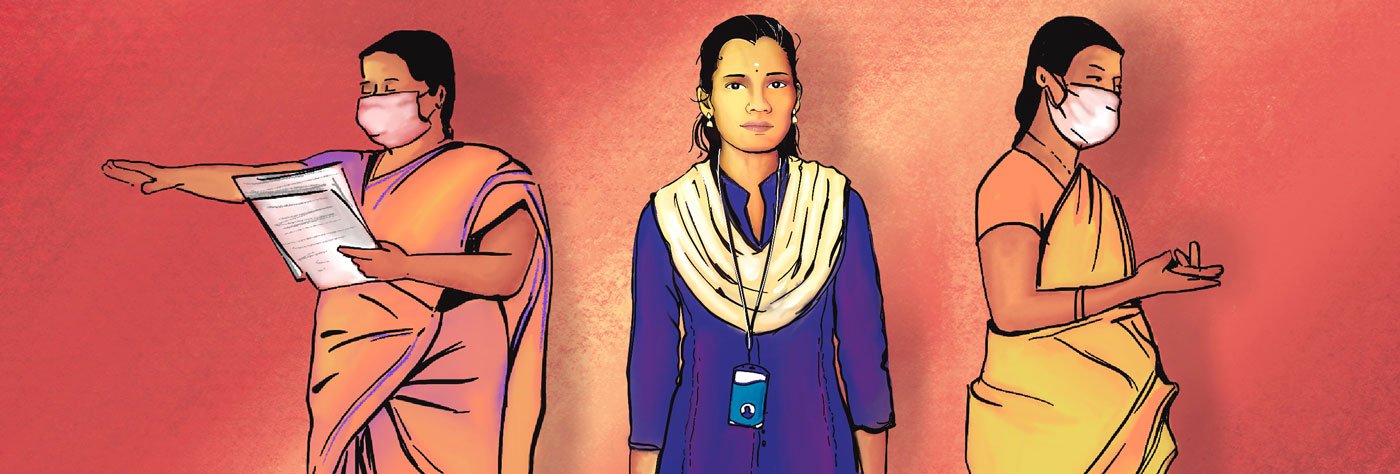
Tamil Nadu, identified as one among high TB burden states in India, had about 110,845 tuberculosis patients in the year 2019 according to the India TB report 2020 . Of this, 77,815 were men and 33,905 were women. Transgender persons accounted for 125 patients.
Yet, the state is ranked low at 14, in notifications of TB cases in recent times. The reasons behind that are not clear, says a medical activist in Chennai with vast experience of dealing with this disease. “Maybe it is because the prevalence is low. Tamil Nadu is better in terms of infrastructure and in poverty alleviation programmes. Many health measures are better in this state. But it could also mean that the government machinery is not functioning properly. In some hospitals, getting a chest x-ray done is a huge task [further complicated by the crush on health services due to Covid-19]. We do not provide all mandatory tests for tuberculosis. But unless the ongoing prevalence survey is out, we cannot really say why notification is low in the state.”
For TB sufferers, there is still the unquantifiable issue of stigma to contend with. “While the women who are impacted may be fewer in numbers than men, the stigma associated with the disease cuts differently. Men are stigmatised too, but in the case of women, it’s worse” explains Anupama Srinivasan, deputy director of REACH.
Janani and Devi would agree. This may be one reason that has drawn them to their present line of work.
*****
And then there’s Poongodi Govindaraj. This 30-year-old campaign leader from Vellore has contracted TB three times in her life. “In 2014 and 2016, I took TB much more lightly than I should have and discontinued the tablets,” she says. “In 2018, I met with an accident and during the course of treatment, I was informed that I had spinal TB. This time, I finished treatment and I am fine now.”
Poongodi had completed her Class 12 successfully and was studying for a BSc degree in Nursing when she had to quit. “I had three babies in 2011, 12 and 13. All three died immediately after birth,” she says. “ I had to discontinue my nursing course due to health reasons.” And not just her own. Her mother died of TB in 2011. Her father now is a worker at a hairdresser’s salon. Poongodi’s husband, who held a minor job in a private company, left her soon after she was diagnosed with TB in 2018, and she has been living at her parents’ place since then.
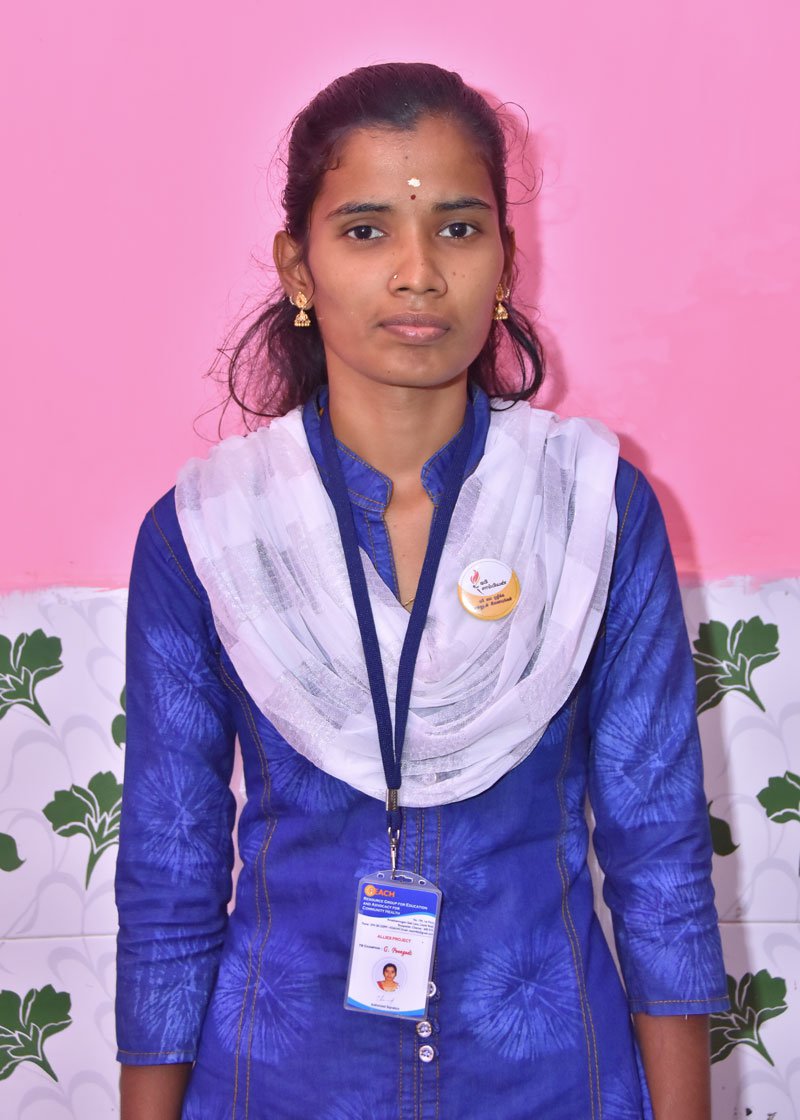
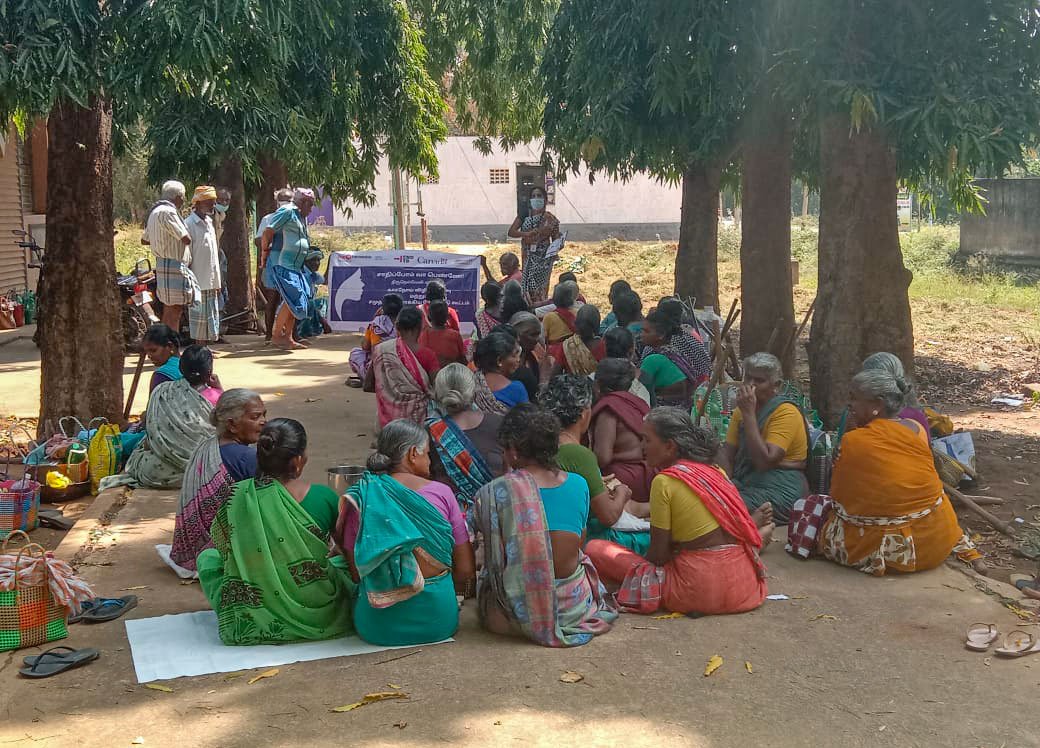
Poongodi Govindaraj (left) conducting a workshop (right); she is a campaign leader from Vellore who has contracted TB three times
Poongodi says her family once had a bit of property but had to sell it all for treatment and to pay for the divorce case that followed after her husband deserted her. “My father guides and supports me now. I am happy doing what I am as someone raising TB awareness,” She says. Tuberculosis brought Poongodi’s weight down to 35 kilograms “Earlier, I used to weigh around 70 kilos. However today I am successful as an anti-TB campaign leader. I have offered counselling for at least 2,500 people about tuberculosis and how to handle it. I have followed up on the treatment of 80 TB patients, of whom 20 have so far been cured.” For someone like Poongodi who had never held a job earlier, her role as a ‘Woman TB Leader’, she says, “offers me peace, happiness and satisfaction. I am doing something which I feel proud of. To do that kind of work living in the same village as my husband does feels like an immense achievement.”
*****
The Saadhipom Vaa Penne (Come on Women! Let us achieve) programme identifies women who can assist and promote TB case detection. Launched by REACH, it is being implemented in four districts of Tamil Nadu – Vellore, Villupuram, Tirunelveli and Salem.
Some 400 women in the communities here are being trained in this programme to become the go-to persons for health in their villages or wards – through an over-the-phone training. Another 80 will be trained as Women TB Leaders (like Poongodi) who undertake screening for tuberculosis in public health facilities, says Anupama Srinivasan.
While that may appear numerically modest given the scale of the problem, it is important to Janani, Devi and Poongodi and other women – and the thousands of TB patients they will reach over a period of time. And its significance goes beyond the medical to the realm of the social and economic. And the impact on the confidence of those it touches is immeasurable.
“This place is soothing” Janani says, referring to her everyday work here. Two months after she started working at REACH, her husband (and his family) came back to her. “I don’t know if it is the money I earned – he would often accuse me of being a wastrel at home – or perhaps he had grown lonely and realised my importance. Whatever, my parents were happy that a reconciliation was possible after the divorce case.”
To keep her parents happy, Janani went with her husband in February this year. “Till now he takes good care of me. I thought TB had destroyed my life when in reality it has given more meaning. To know that I am educating people about a disease that almost killed me, well, it’s empowering.”
Kavitha Muralidharan reports on public health and civil liberties through an independent journalism grant from the Thakur Family Foundation. The Thakur Family Foundation has not exercised any editorial control over the contents of this reportage.
